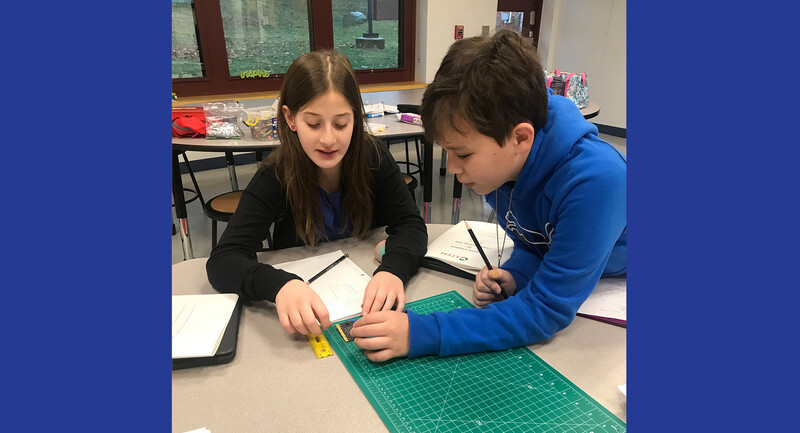"What are you going to say when your principal walks into your classroom and says it is too loud for the students to be learning?" A former professor once posed this question to my mathematics methods class. At the time, I didn't pay much attention: I thought I would prefer a calm and quiet learning environment. But ever since my teacher training, my instructors encouraged me to engage students through games.
In my 1st grade classroom, I use a guided math workshop structure, which blends direct instruction and hands-on learning opportunities. I had to adjust to the accompanying dialogue and activity, but I now love the excitement. If my principal comes into the classroom, he hears the din of students discussing mathematical concepts, working through fairness issues, and comparing strategies.
The noise means they are interacting with mathematical concepts in a fun and challenging way, seamlessly using vocabulary, strategic thinking, and communication skills. Games also give students more opportunities to build computational fluency and a strong sense of "benchmark numbers," such as 10s and 100s (Rutherford, 2015). And, who doesn't love a friendly competition?
Here are five reasons why you should consider adding games to your teaching repertoire:
Math Games Differentiate Instruction.
Some students meet with me in a small group to work on specific skills, while others complete activities and play games with technology, dice, dominos, or geometric shapes. Each rotation lasts between 10 and 15 minutes. With this kind of variation, students complete learning tasks catered to their appropriate achievement level and have opportunities to work in groups, with partners, and independently.
It is important to keep daily differentiated games simple. My teammate and I put laminated paper game boards, along with dice, dominoes, markers, and erasers, into labeled freezer bags for easy access. We make sure to have a few games for each of the core concepts. When students learn addition strategies at the beginning of the year, I put out several dice games. During the same rotation, some students play a Greg Tang math game or practice adding numbers with digital stamps.
Math Games Hold Students Accountable.
Although it may sound like students are given free rein during center work, the opposite is true. Students have online portfolios through the Seesaw app on their iPads and are expected to take pictures of their completed game or task to stay accountable. This method helps me to monitor each child's understanding and effort. Families can check the app to see what we worked on. I also use exit slips and other formative assessments, such as having students record themselves explaining a concept within their digital portfolio. These tools help me monitor student learning and plan my groups for the following day, based on who needs more direct assistance from me and who may be ready for a new challenge.
Math Games Develop Vocabulary.
Games make math concepts social, collaborative, and relevant to all learners. I once had a student who came in with very limited English and mathematical vocabulary. I struggled at first to gauge her understanding of concepts. But she was able to jump right in during math games, which gave me a small window into her comprehension and allowed her to engage in social activities more naturally. She began picking up mathematical terms from peers and felt less frustrated during math because she could access concepts through the games. It was also beneficial for me to listen to her explanation recordings to see which words she was incorporating into her vocabulary and which concepts she struggled to explain.
Math Games Foster Social Skills.
Because students usually play games in pairs or groups, they must figure out how to get along and work through social issues. We roleplay to demonstrate how to address situations like cheating, bragging, or not taking turns. We talk about the importance of fairness. I coach students on how to allow for "think time" and how to help someone else without giving away the answer. My hope is that these skills transfer beyond our guided math time.
Games also improve students' speaking and listening skills. I may ask students who are experienced with a game to teach another group how to play it. These interactions support students' articulation of their math vocabulary and put our classroom values of teaching and learning alongside one another into practice.
Math Games Extinguish Fear.
Games add a dose of fun and give them a break from just filling out a worksheet. They also provide common ground for students who may feel anxious about the subject. I often have a good idea of which games groups will enjoy based on skill level and interest. I change out the games depending on the unit of study and build in opportunities for students to choose their own games from a selection. Using math games allows students to know what to expect each day without the routine becoming old or boring.
A successful and game-based math workshop takes consistent modeling at the beginning, especially for elementary students. Just like any lesson plan or activity, it is important to consider the ultimate goal for student learning. A math game is not a "quick fix" for students who are frustrated by mathematics. However, when games are thoughtfully chosen and meet the appropriate standards, students are more excited to transition to math than ever before. There is no reward like watching students who previously felt they were bad at math emerge into the most energetic ones to begin math workshop.







